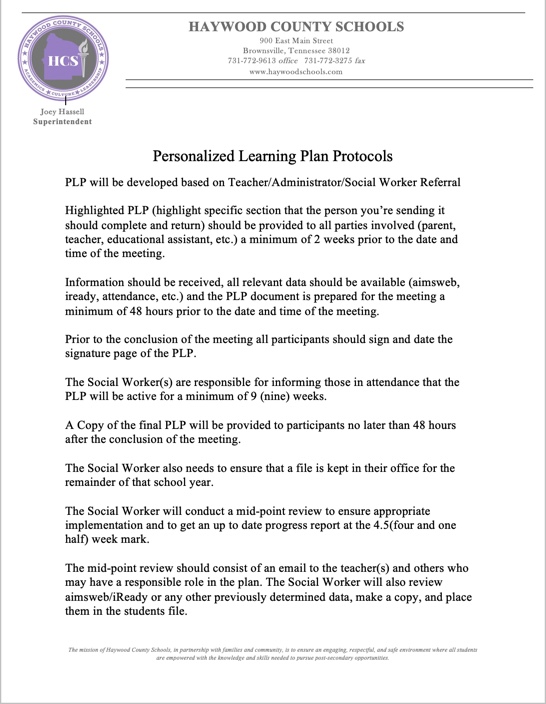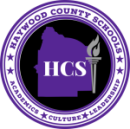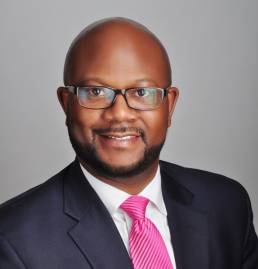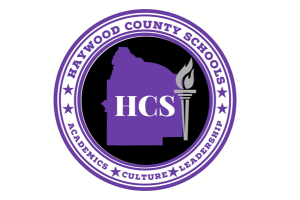Personalized Learning Plans – HCS
At the root of public education is the formulaic desire to offer all students a challenging and rigorous education that prepares them for a successful future. Over time, the evolution that has taken place in education has been immense. From full classroom inclusion for students with learning disabilities to differentiated instruction, the focus of public education has tried to become as individualized as possible when it comes to the learning needs of students. The education system isn’t perfect, but it’s working to ensure that all students learn in a way that is conducive to their individual learning styles.
In Haywood County Schools, the district strives to know students by name, strength, and need. These aren’t merely words to place on a mission statement written in a fancy font. In HCS, programs and structures are strategically placed in order to support students in all areas of their learning lives. An example of this is placing school social workers on each campus in the district.
Even before the interrupted learning years of COVID-19, there was recognition that students are not simply intellectual beings; they have emotional and social needs, too. If those needs are not met, learning will be impacted. Students in all districts, including HCS, wrestle with social/emotional issues outside of the school walls and need support to help them reach their academic potential.
Director of Equity, Learning Loss, and Stakeholder Engagement Corey Currie leads a team of eight social workers that connect with families across the district.
Corey recently discussed the Truancy Intervention Program that was implemented last year in HCS. Now, he explains the next step in the support process for students and families in HCS.
This school year, Personalized Learning Plans (PLP) will be implemented on all campuses in order to ensure students who need extra academic support receive that support in a structured way.
“If a student is approaching or below mastery on a benchmark test, that could be a trigger for some extra support from the school social worker in regards to partnering with a student (and family) on a personalized learning plan,” Corey explained. “The PLP addresses the academic deficiencies, but also could be a referral that addresses some behavior issues if those are the cause of the academic deficiencies.”
The word “referral” can have a negative connotation. In this context, a referral is only meant for student support. Students who already receive special education services from the school and district will not be included in the PLP referral process because they already receive extra academic support.
A referral is not automatically made by a teacher based on a single benchmark test score. There are multiple pieces of data that are evaluated before a referral is made. Classroom teacher’s professional opinion is heavily weighted in this process. Teachers and social workers will also use TNReady scores and benchmark test scores from last school year to make a referral decision. A teacher’s discretion for a referral is highly valued.
Once a student is referred, an initial meeting is set up by the social worker that will include the student, parents, teachers, and a member of the school administrative team. This group will collectively work together to ensure the student is being supported in a way that maximizes the student’s learning strengths and needs.
“During this meeting, there will be a discussion about resources that will be provided to help make sure this PLP is successful. One of those resources is the Tennessee All Corps Tutoring,” Corey explained.
TN All Corps is a tutoring program that provides time before, during, and after school for students to receive extra help in reading and math. Not every campus in HCS provides three tutoring sessions, but all campuses provide at least two each day.
“Students on a PLP will have the option to attend as many TN All Corps sessions as they can while on the PLP,” Corey said. “Within this plan, there are action steps and goals that are built into it in order to measure students’ progress and provide data that shows growth within the plan. Last year we only had morning and afternoon tutoring, but this year we’ll have a tutor in each school during the day to provide extra help in reading and math.”
Once a student is placed on a PLP, the plan will last a total of nine weeks. During this nine week period, the student will have extra support through TN All Corps Tutoring as well as informal check-ins with the school social worker. A constant stream of communication will be happening between the parties involved – teacher, student, parent, and social worker. At the midway point of the nine weeks, a formal meeting will occur to assess progress.
“The PLP will last for a total of nine weeks. At the 4.5 week point, the social worker will review the plan with the student and parents and teachers and monitor where the student is and if the student is progressing in the manner intended,” Corey said. “We’ll look at all the data available to us as well as teacher input to decide on the future direction of the implementation of a PLP.”
Much like the school social workers’ role in the Truancy Intervention Program, these meetings with students and families oftentimes will open the door to needs of the families that may have been previously unknown.
“The job of the social workers and the social work department in HCS is to support students and families 100%. Much like the truancy intervention plan, the PLP is in place to help students maximize their learning potential,” Corey explained.
While the PLP does focus on learning, it’s not necessarily about grades. The PLP, and the conversation surrounding it, is designed to truly understand and support the learning needs of students in the district.
“The PLP is not about grades necessarily; it’s about helping students reach their fullest academic potential,” Corey said. “It allows us to have that other touchpoint to know our students by name, strength, and need. That’s our daily work – name, strength, and the needs of every student. Before we discuss anything academically, we ask questions about the student – their likes, dislikes, what do they like to be called. We’re trying our best to know as much as we can about each student.”
In the end, a school district, the teachers, and schools’ priority has to be educating students. However, educating students goes well beyond teaching them an academic subject. The PLP is one of many supports that are being put in place to make sure students in HCS are receiving the tools needed to maximize their learning experience and best prepare them for a successful future.
“I tell our social workers that our job is to put students in a seat in a classroom in a manner that is conducive to learning. We want to help students be in school and learn as effectively as they can,” Corey said.



